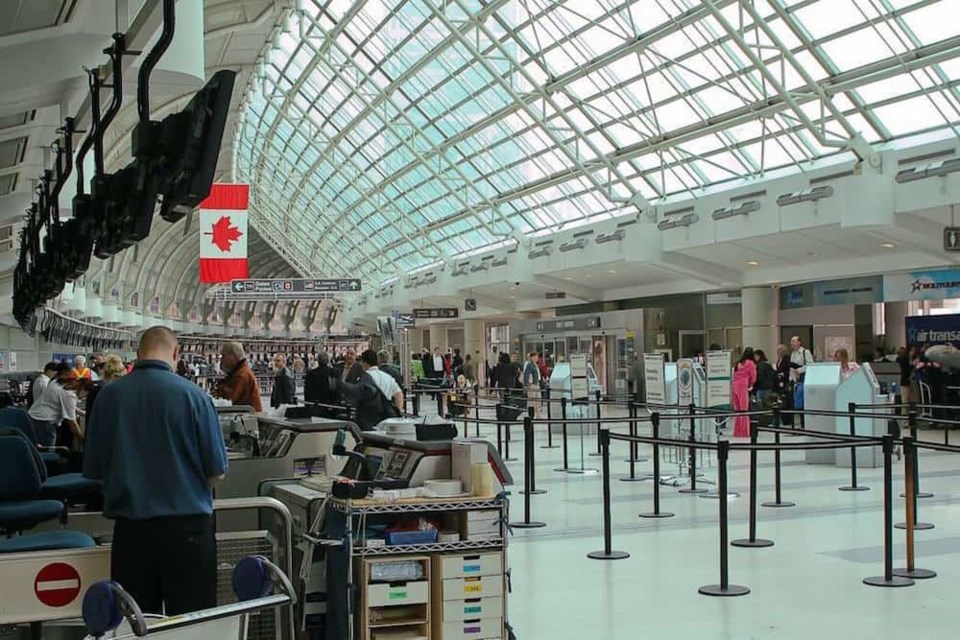Travel insurance policies vary widely across Canadian providers -- but it is up to the consumer to ensure they will be covered.
Will McAleer, executive director of the Travel Health Insurance Association of Canada (THIA), says travellers shouldn't put insurance on a quick to-do list before they leave for a trip.
Purchasing a policy "needs to be a process," he tells V.I.A., noting that there are several factors to consider, including your current health status, pre-existing conditions, age, health history, and more.
There are two main categories of travel insurance: coverage for medical emergencies incurred on a trip, and coverage that protects the "travel investments" with a trip cancellation policy. The latter protects the cost travellers pay to travel to and from their destinations, as well as their accommodation and any other activities on their trip.
A comprehensive travel insurance plan will cover travellers for the cost of their trip, trip interruptions, baggage loss, baggage delay, as well as emergency medical expenses.
Will an all-inclusive travel insurance policy cover me for everything?
Consumers should be wary of terminology. While a policy may be labelled "all-inclusive," it might not provide complete coverage -- even if the events aren't caused by high-risk activities. They need to read the fine print, identify specific risks on their trip, and understand if a policy will cover them based on their current health.
Some providers, such as Manulife, provide up to $10 million in emergency medical coverage for a single trip, while others may pay a million or less. While a million may seem like far more than you could need, in the event of an emergency, particularly in the United States, you could face much higher costs. If you need to be transported by air from one city to another, for example, costs could quickly climb.
Travellers also need to consider what kind of activities they will be doing on their trips since many policies don't include coverage for ones that they deem "high-risk." For example, injuries from scuba diving, bungee jumping, or whitewater rafting might not be covered. That said, some providers may offer coverage for adrenaline-fuelled sports, so it is prudent to shop around.
McAleer notes that travel interruption is top of mind for people headed on trips anywhere in the world. In 2023, numerous local travellers were impacted by raging B.C. wildfires, the fires in Maui, and multiple hurricanes. For a trip you cancel due to a weather event, an advisory must be up on the day you are scheduled to travel.
Still, trips taken as "revenge travel" -- a term coined to describe a surge in trips following a decrease during the pandemic -- mean that people are buying more travel insurance than ever.
Travel is still not something for the faint of heart, however, and it "seems to be much more disrupted than in the past," McAleer highlights, noting that many more individuals are protecting the value of their travel arrangements" as a result.
Travel insurance with parametric benefits
A travel insurance plan that includes parametric benefits takes the legwork out of getting the money back that consumers are owed. "Parametric" means that rather than filing for a claim, these benefits automatically pay the traveller, meaning they won't have to fill out forms, following a "trigger" event.
For example, if their policy includes payment for a flight delay over six hours and they experience a seven-hour one, then they will automatically receive payment to their banking account. They simply register their trip online in advance of departure and provide the company with their banking information.
Parametric benefits vary from provider to provider, of course, but they generally provide faster payouts and are less complicated for the average person to comprehend. Plus, consumers won't miss a payout because they didn't read the fine print.
McAleer stresses that travellers should always thoroughly review the steps they need to take if they must cancel a trip due to illness, a natural disaster, or any other unforeseen and coverable circumstance. In most cases, it is up to the policyholder to provide proof of their claim.
If you get sick before a trip, for instance, you'll want to call your provider to confirm whether you need a report from your physician. Further, you'll want to know whether a specific form needs to be filled out and what other information could be required.
Travellers who have a trip in the next few months will want to purchase coverage as soon as possible. While it hasn't happened yet, the cost of a plan might increase.
"It has been a pretty active time for travel insurers over the last several years and we haven't seen any major movements in premium rate," he says, adding that it "is prudent to expect there could be some in the future."
Think you only need travel insurance for trips outside of the country? Think again. Medical services outside of B.C. can cost a pretty penny without a proper plan.



